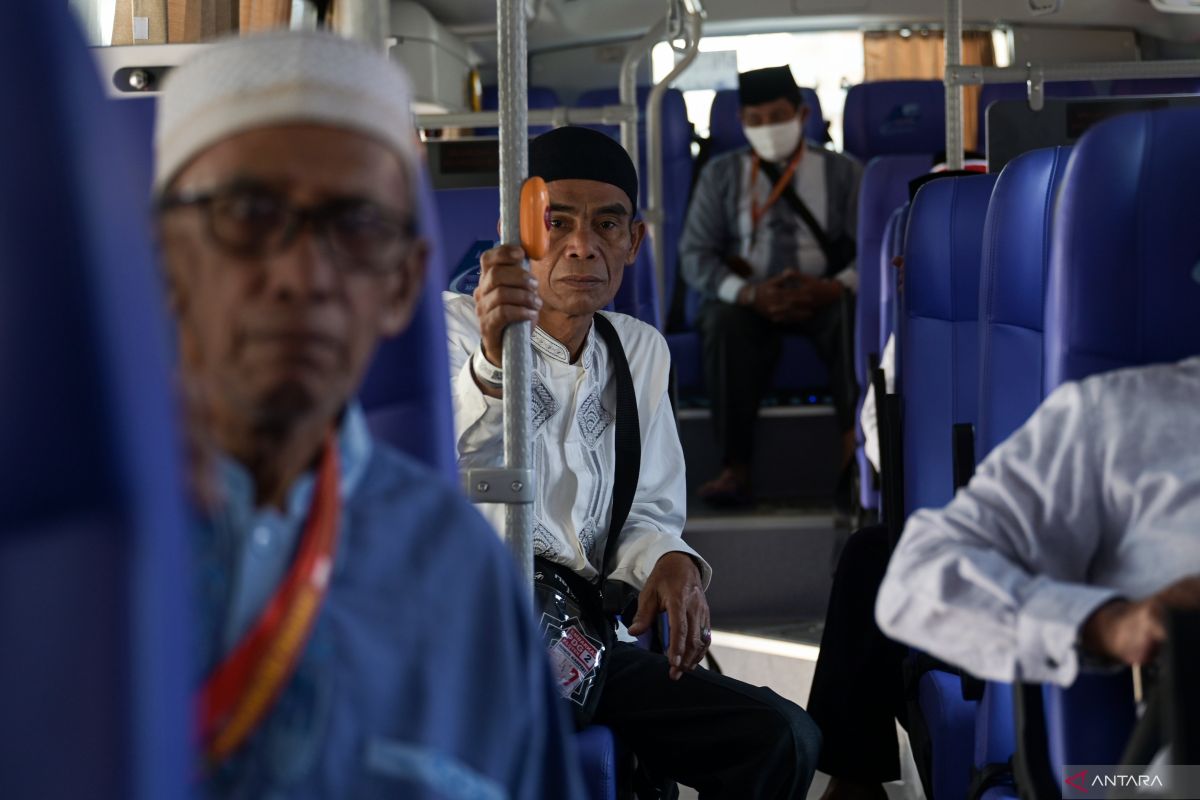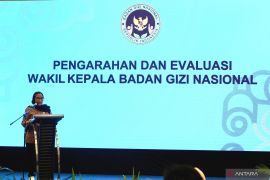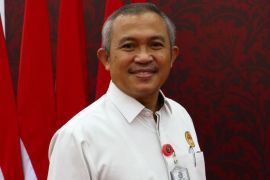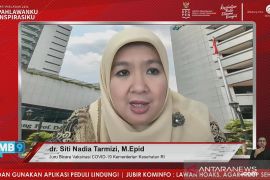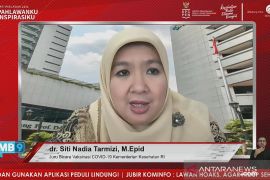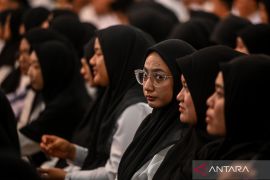This year, many Indonesian pilgrims aged above 65 are participating in Hajj. According to the Integrated Hajj Information and Computerization System (Siskohat), their number has reached nearly 45 thousand, or more precisely, 44,795.
Thus, they account for 21 percent of Indonesia's total Hajj quota of 213,320.
These older adults have been divided into four age groups, with 34,420 falling in the 66–75 age bracket, 8,435 in the 76–85 age bracket, 1,835 in the 86–95 age bracket, and 55 aged over 95 years.
As per records, the oldest Hajj pilgrim this year — Harjo Mislan from Ponorogo, East Java — is 110 years old.
These older adults have been further classed into four categories: independent older adults; older adults with comorbidities, but who can still carry out activities independently; older adults who need others' help to carry out outdoor activities; and those who need help during indoor and outdoor activities.
Considering the high number of elderly pilgrims, it is understandable that the government is striving to provide the best services to the pilgrims, especially the elderly and those with disabilities.
Health istithaah
The efforts to realize an elderly-friendly Hajj cover the health of pilgrims. The service scheme is likely to serve as a model for Hajj services that will continue to be developed in the coming years. This is because of the increasing trend of elderly Hajj pilgrim candidates and long Hajj queues in Indonesia.
The service scheme for elderly Hajj pilgrims begins, among other things, with a policy outlining health istithaah (capability) requirements.
This means that before completing the Hajj payment, prospective pilgrims need to get a health check-up to ensure they meet the health istithaah requirements.
Earlier, prospective pilgrims could complete the payment before undergoing a health check.
The new policy has been taken to reduce the number of pilgrim deaths.
"This is an effort to ensure the pilgrims who will depart are healthy even though, based on their age category, they are older adults," a spokesperson for the Ministry of Religious Affairs, Anna Hasbie, said.
Special officers
Another effort to make Hajj elderly friendly has been the appointment of special Hajj officers to serve older adults.
The officers of the Crisis Management and First Aid for Hajj Pilgrims (PKP3JH) and Disability Services include doctors from the Indonesian Military (TNI) and the National Police (Polri) hospitals. Apart from older adults, they also serve people with disabilities.
Furthermore, the manasik (practice run) guidance for the 2024 Hajj is also a good measure to realize an elderly-friendly Hajj. Unlike in the past, a special curriculum for elderly Hajj pilgrims has been included in the manasik guidance process this time.
The manasik is designed to encourage pilgrims to care about each other, especially older adults.
The Ministry of Religious Affairs has also sought a commitment from the Hajj and Umrah Guidance Group (KBIHU) to comply with the rules related to services for older adults, especially adjusting the organization of prayers to the health and physical conditions of elderly pilgrims.
Shorter departure ceremonies
The departure process of pilgrims often becomes long and tiring due to the many ceremonial events.
The Ministry of Religious Affairs issued Circular Letter of the Director General of Hajj and Umrah Number 1 of 2024 concerning Departure and Arrival Mechanisms on March 15, 2024, which includes provisions regarding departure and arrival ceremonies, including the reception.
The circular gives priority to elderly pilgrims. Therefore, this year, long speeches during departure and arrival ceremonies have been done away with.
Services in Saudi Arabia
Elderly-friendly services have also been readied for pilgrims during their stay in Saudi Arabia.
The services include accommodation, transportation, catering, health, and prayer assistance, including during the peak of Hajj at Arafat, Muzdalifah, and Mina (Armuzna).
For transportation services, Indonesian Hajj officers in Saudi Arabia have readied special low-deck buses for elderly pilgrims.
The officers have also prepared special rooms for older adults and their companions as well as special hotels for elderly pilgrims taking part in the Wukuf prayer.
As for catering, Hajj officers have drawn up special menus for elderly pilgrims, based on factual data on their requirements.
Regarding health services, there are a number of aspects that have been prepared. They include walking aids, special visitations for elderly pilgrims, geriatric doctors, psychiatrists, and other medical personnel.
For worship activities, the officers have prepared a special scheme for older adults, namely performing Umrah in a wheelchair, which is controlled using a card.
Safari Wukuf
The government has also readied the Safari Wukuf program, under which pilgrims who are sick and cannot walk will be provided vehicles so they can participate in wukuf.
The program, which targets older adults and people with disabilities, was first carried out in 2023, with 129 older adult participants.
The program has also been prepared this year, targeting those whose health needs special attention, for instance, those who need help in personal tasks like eating and bathing.
Before leaving for Arafat to carry out wukuf, elderly and disabled pilgrims will be accommodated at a special hotel where they will be assisted by doctors and nurses who are members of the PKP3JH, the worship guidance team, and elderly service officers.
For elderly pilgrims not participating in Safari Wukuf, Indonesian Hajj officers have prepared a plan for their movement while in Armuzna. Elderly pilgrims are scheduled to depart from Arafah by the last bus, which will take them through Muzdalifah (without making a stop) and straight to Mina.
The officers will also help elderly pilgrims return earlier after the peak of Hajj worship activities in Armuzna.
The Ministry of Religious Affairs will not hold a welcoming ceremony upon the pilgrims' return so that they can promptly head home to rest.
Related news: Hajj visa case: DPR highlights need for coordination with S Arabia
Related news: Hajj flights from Indonesia 87 percent on-time: Ministry
Related news: Saudi Arabia detains 37 pilgrims from Makassar for visa violation
Translator: Asep Firmansyah, Raka Adji
Editor: Azis Kurmala
Copyright © ANTARA 2024
